10 G METHYL JASMONATEPURE
- CAS NO.:39924-52-2
- Empirical Formula: C13H20O3
- Molecular Weight: 224.3
- MDL number: MFCD00036656
- EINECS: 254-705-5
- SAFETY DATA SHEET (SDS)
- Update Date: 2024-11-21 15:02:05

What is 10 G METHYL JASMONATEPURE?
Description
The jasmonates are a group of plant stress hormones that naturally occur in plants following exposure to certain types of stresses, including pathogen and herbivore attacks. (±)-
The Uses of 10 G METHYL JASMONATEPURE
Possible application (Flavor): Has many flavor uses including plum, peach, apricot and tutti-frutti.
The Uses of 10 G METHYL JASMONATEPURE
Methyl jasmonate (MJ, MeJA) is suitable in controlling blue mold decay in sweet cherry fruit caused by Penicillium expansum.
Methyl jasmonate may be used in the following studies:
- As a potential anti-cancer agent that shows selective cytotoxic effect towards cancer cells.
- To induce the defensive proteinase inhibitor proteins synthesis in plant leaves.
- As an elicitor to enrich the total anthocyanin content (TAC) in radish sprouts.
- As an elicitor in inducing the biosynthesis of trans-resveratrol, a plant phenol in Vitis vinifera cv. Negramaro cell cultures.
- As a mediator of extensive plant transcriptome reprogramming/ remodeling on exogenous treatment to Salvia sclarea leaves.
- As a modulator in the expression of chalcone synthase (chs) and proline-rich cell wall protein (PRP), two wound-responsive genes in soybean suspension cultures.
- As a starting material in the synthesis of [13C,2H3]-MeJA, an internal standard used in the quantitative determination of MeJA in plant tissues.
- As a test compound in the application of reduced graphene oxide–poly(safranine T) film on glassy carbon electrode (rGO–PST/GCE) in the electrochemical determination of MeJA in jasmine essential oil.
What are the applications of Application
(±)-Methyl Jasmonate is a compound that induces the synthesis of proteinase inhibitors in plant leaves
General Description
Methyl jasmonate is a plant growth regulator mainly used to enhance the aroma quality of some fruits and vegetables.
in vitro
it was found that (±)-jasmonic acid methyl ester, when applied to surfaces of tomato plants, could induce the synthesis of defensive proteinase inhibitor proteins. the presence of (±)-jasmonic acid methyl ester in the chamber atmosphere containing plants resulted in the accumulation of proteinase inhibitors in leaves of all studied three species [1]. another study found that (±)-jasmonic acid methyl ester could induce death in each of the studied cell lines, while other plant stress hormones could not affect normal human lymphocytes. in addition, (±)-jasmonic acid methyl ester caused apoptotic death, as measured by flow cytometric dna profile, characteristic nuclear morphology, and caspase-3 activity elevation [2].
in vivo
animal study showed that mice bearing el-4 lymphoma and treated with (±)-jasmonic acid methyl ester survived for significantly longer periods of time than untreated mice, suggesting that plant stress hormones might potentially be a new class of anti-cancer drugs [2].
References
1. farmer, e.e. and ryan, c.a. interplant communication: airborne methyl jasmonate induces synthesis of proteinase inhibitors in plant leaves. proceedings of the national academy of sciences of the united states of america 87, 7713-7716 (1990).2. fingrut, o. and flescher, e. plant stress hormones suppress the proliferation and induce apoptosis in human cancer cells. leukemia 16, 608-616 (2002).
Properties of 10 G METHYL JASMONATEPURE
| Boiling point: | 110 °C/0.2 mmHg(lit.) |
| Density | 1.02 |
| refractive index | n20/D 1.474(lit.) |
| Flash point: | 156 °C |
| storage temp. | Store at RT |
| solubility | water: soluble340mg/L at 25°C(lit.) |
| form | Oil |
| color | Colourless |
| Odor | at 100.00 %. jasmin flower oily green petal soft greasy |
| Merck | 13,5279 |
| EPA Substance Registry System | Cyclopentaneacetic acid, 3-oxo-2-(2-pentenyl)-, methyl ester (39924-52-2) |
Safety information for 10 G METHYL JASMONATEPURE
| Signal word | Warning |
| Pictogram(s) |
 Exclamation Mark Irritant GHS07 |
| GHS Hazard Statements |
H302:Acute toxicity,oral H319:Serious eye damage/eye irritation |
| Precautionary Statement Codes |
P305+P351+P338:IF IN EYES: Rinse cautiously with water for several minutes. Remove contact lenses, if present and easy to do. Continuerinsing. |
Computed Descriptors for 10 G METHYL JASMONATEPURE
| InChIKey | GEWDNTWNSAZUDX-PLNGDYQASA-N |
Abamectin manufacturer
New Products
4-AMINO-TETRAHYDRO-PYRAN-4-CARBOXYLIC ACID HCL 4-(Dimethylamino)tetrahydro-2H-pyran-4-carbonitrile 4-Aminotetrahydropyran-4-carbonitrile Hydrochloride (R)-3-Aminobutanenitrile Hydrochloride 3-((Dimethylamino)methyl)-5-methylhexan-2-one oxalate 1,4-Dioxa-8-azaspiro[4.5]decane 5-Bromo-2-nitropyridine Nimesulide BP Aceclofenac IP/BP/EP Diclofenac Sodium IP/BP/EP/USP Mefenamic Acid IP/BP/EP/USP Ornidazole IP Diclofenac Potassium THOMAIND PAPER PH 2.0 TO 4.5 1 BOX BUFFER CAPSULE PH 9.2 - 10 CAP SODIUM CHLORIDE 0.1N CVS ALLOXAN MONOHYDRATE 98% PLATINUM 0.5% ON 3 MM ALUMINA PELLETS (TYPE 73) LITHIUM AAS SOLUTION 2-Bromo-1-(bromomethyl)-3-chloro-5-nitrobenzene 2-Bromo-3-nitroaniline N-(3-Hydroxypropyl)-N-methylacetamide 3-Bromo-6-chloropyridazine 4-ethyl-3-nitrobenzoic acidRelated products of tetrahydrofuran



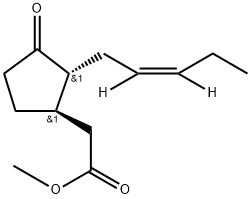
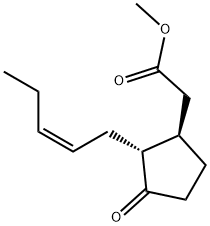

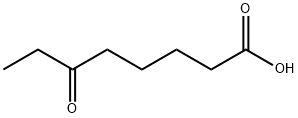
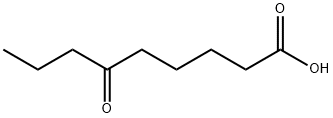
You may like
-
 Methyl epi-jasmonate 98%View Details
Methyl epi-jasmonate 98%View Details -
 Methyl jasmonate, 95% CAS 39924-52-2View Details
Methyl jasmonate, 95% CAS 39924-52-2View Details
39924-52-2 -
 Methyl Jasmonate 95% (mixture of isomers) CAS 39924-52-2View Details
Methyl Jasmonate 95% (mixture of isomers) CAS 39924-52-2View Details
39924-52-2 -
 Methyl jasmonate CAS 39924-52-2View Details
Methyl jasmonate CAS 39924-52-2View Details
39924-52-2 -
 1823368-42-8 98%View Details
1823368-42-8 98%View Details
1823368-42-8 -
 2-(3-(tert-butyl)phenoxy)-2-methylpropanoic acid 1307449-08-6 98%View Details
2-(3-(tert-butyl)phenoxy)-2-methylpropanoic acid 1307449-08-6 98%View Details
1307449-08-6 -
 Ethyl 3-(furan-2-yl)-3-hydroxypropanoate 25408-95-1 98%View Details
Ethyl 3-(furan-2-yl)-3-hydroxypropanoate 25408-95-1 98%View Details
25408-95-1 -
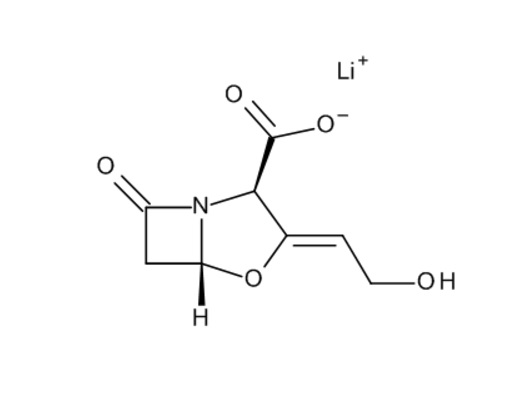 Lithium ClavulanateView Details
Lithium ClavulanateView Details
61177-44-4